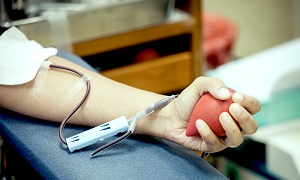Best Doctors in India for Hip Replacement
- Orthopedic Surgeon, Chennai, India
- Over 12 years’ experience
Profile Highlights:
- Dr. Kunal Patel consults on Orthopedics related problems at the Apollo hospitals of Chennai.
- He was part of the team which set Limca’s World record of Highest Joint Replacement Surgeries in March 2015.
- Dr. Kunal Patel is well-trained in Asia’s first and only Brainlab Arthroplasty Computer Navigation Orthopedic suite and has completed several fellowships related to his field.
- Orthopedic Surgeon and Spine Surgeon, Chennai, India
- Over 12 years’ experience
Profile Highlights:
- Dr. Madhu Kiran Yarlagadda is an orthopedics – consultant specializing in Joint and spine surgery and works at the Apollo hospitals of Chennai.
- Dr. Madhu Kiran Yarlagadda’s team carried out Robotic Spine Surgery for the first time in South-East Asia and performed Endoscopic Transforaminal Spine Surgery in Chennai.
- He treats spine diseases and has the facilities and expertise to perform robotic spine surgery. Along with that, he treats patients with joint and other orthopedic issues.
- Orthopedic Surgeon, Chennai, India
- Over 16 years’ experience
Profile Highlights:
- Dr. Arun Kannan is a well-known joint replacement surgeon at the Apollo Hospitals, Chennai.
- In his 16 years of experience doing joint surgeries and treating orthopedic issues, Dr. Arun Kannan has worked in the US as well as India and has gained enough trust and recognition from his patients.
- He has been excellent in his academics as well as practice because of which he received prizes and appreciation in both.
- Orthopedic Surgeon, Chennai, India
- Over 40 years’ experience
Profile Highlights:
- An Orthopedic doctor by profile, Dr. Gopala Krishnan has around 40 years of experience in his field.
- After his initial studies in medicine in Chennai, Dr. Gopala Krishnan moved to the US to pursue M.Ch in Orthopedics in 1984.
- His experience and dedication have helped him gain recognition in the field and build trust among patients.
- Orthopedic Surgeon, Chennai, India
- Over 24 years’ experience
Profile Highlights:
- Dr. Rajasekar P is an experienced orthopedist with 24+ years of experience.
- He treats and consults patients with problems with Joints, fractures, osteoporosis, Spine injuries, etc.
- He is an MBBS and DNB qualified doctor and practices at Apollo hospitals of Chennai.
- Orthopedic Surgeon, Chennai, India
- Over 50 years’ experience
Profile Highlights:
- Dr. Uma Chandran S specializes in orthopedics and is a veteran surgeon at Apollo Hospitals of Chennai.
- He has spent more than 50 years in the field of orthopedics and is believed to be one of the best orthopedists in Chennai.
- He is also known for his expertise in bone replacement surgery, spine movement, fracture treatment, etc.
- Spine Surgeon and Orthopaedic Surgeon, Chennai, India
- Over 18 years’ experience
Profile Highlights:
- Dr. Muralidharan Venkatesan is a consultant in spine surgery from Chennai.
- He provides comprehensive cervical (neck), thoracic (upper back), and lumbosacral (lower back) conditions treatment.
- Dr. Venkatesan pursued MBBS, MRCS, and a fellowship FRCS and shifted his specialization to spinal surgery.
- Dr. Venkatesan has his papers published in several journals.
- Orthopedic Surgeon and Spine Surgeon, Chennai, India
- Over 23 years’ experience
Profile Highlights:
- Dr. Ravi Venkatesan is a spine surgery specialist from Chennai, Tamil Nadu.
- His experience in spine surgery, orthopedics, and spine deformity surgery date back nearly 23 years.
- Dr. Venkatesan has performed several surgeries and has been an active member of various orthopedics groups.
- Many organizations have recognized his service and have awarded him for his dedication.
- Orthopedic Surgeon, Gurugram, India
- Over 10 years’ experience
Profile Highlights:
- Irfan Banday is a brilliant young orthopedic surgeon with over 10 years of experience handling trauma surgeries and ortho problems.
- Irfan received Fellowship in Knee Arthroscopy and Arthroplasty and Shoulder and Upper Limb Arthroscopy, Arthroplasty & Reconstructive Surgery.
- He manages simple & complex fractures, Reconstructive Surgeries of the Knee, Shoulder, Upper limb, and complex tendon transfers.
- Orthopedic Surgeon, Gurugram, India
- Over 18 years’ experience
Profile Highlights:
- Sandeep Chauhan is one of the best orthopedic surgeons and an expert in managing complex fractures, even in children, soft tissue injuries, septic arthritis, and osteomyelitis.
- He performs fracture reconstructions; and arthroplasty procedures like surface replacements, cemented and un-cemented THR, Total Knee Replacement, musculoskeletal infections, UKA knee, hip, shoulder, & elbow replacements.
Best Hip Replacement Hospitals in India
Total Hip Replacement
Total Hip Replacement is a surgical procedure prescribed for people suffering from a bad or damaged hip. In this surgical procedure, the doctor removes the entire hip joint and replaces it with an artificial hip joint usually made of high-quality metal or plastic elements.
A total hip replacement is suggested when all the other primary treatment methods have shown unsuccessful recovery. The primary goal of this surgery is to remove the bad hip joint in order to reduce pain and stiffness while improving hip joint flexibility amongst patients.
Causes of Hip Damage
The primary cause for damage in the hip joint is due to osteoarthritis, a condition the promotes cartilage loss in the hip joint. Apart from osteoarthritis, other causes for a total hip replacement can be:
- Rheumatoid Arthritis
- Post-traumatic Arthritis
- Osteonecrosis
- Fracture or dislocation of the hip joint/bone
- Childhood disorders
Indications for Total Hip Replacement
Usually, general pain and stiffness of the bone is not enough for doctors to recommend a total hip replacement surgery. However, based on your symptoms, doctors might consider the possibility and ask for some diagnostic tests to determine the underlying cause of these symptoms. Some of these symptoms include-
- Intense pain even after taking pain relief medication
- Inflammation of the hip joint due to cartilage loss
- Difficulty during walking
- Difficulty in general movement of the hip joint
- Insomnia due to discomfort or pain
- Stiffness or hip joint locking
Alternative method to Total Hip Replacement
There’s an alternative method to hip replacement, known as the Birmingham Hip Resurfacing Surgery. This procedure is generally suggested for patients falling under the young category, for instance from infants to patients ageing between 40-50. In this surgery, instead of replacing the entire hip joint, the doctors resurface or shaves the damaged part of the hip joint and adds an artificial brace to the joint. This allows free movement and flexibility along with reduced pain. Even though this procedure is more favored over total hip replacement, the final verdict will be disclosed by your orthopedic surgeon based on the damage caused to the hip bone along with your age, weight, general immunity strength and more.
Apart from the two surgical options, other primary non-operative treatment methods may include:
- Pain-relief medications
- Physiotherapy
- Joint supplements
- Weight loss and change in day-to-day activities
Diagnostic tests needed
When the primary treatment methods fail, the doctor may suggest some diagnostic tests to determine the underlying cause and based on the test results, the surgical method is decided. Initial tests include movement or other physical tests along with X-ray, MRI or EKG tests to determine whether the problem is bone-related or neurology-related. Apart from that, the doctor may ask you about running bone or arthritis disorders in your family along with your past medical history.
Total Hip Replacement procedure explained
Preparation
There are no exclusive preparation methods for this surgery. However, the general preparation includes fasting 10-12 hours before the surgery including a 24-72 hour break from alcohol or tobacco consumption strictly. Patients are requested to help the medical team out with a detailed list of past medical history including bleeding disorders, past or ongoing medications including blood thinners, pain relief medications, OTC, herbal supplements, vitamins and even homeopathy medications, and any ongoing allergies to particular medications. Your medical team will help you out with detailed dietary chart for the days leading up to the surgery day and if you’ve not received a chart, we recommend asking your healthcare providers for possible dietary regulations.
Blood Donation
Total Hip Replacement Surgery
The total hip replacement surgery can be conducted in either of the two ways:
- Traditional method or the open-surgery
- Minimally invasive method.
Even though the procedure for both the methods remains the same, the only notable difference is within the size of the incision. In the latter method, the incision is kept minimum and the post-operation care, wound healing, recovery, and pain is usually less compared to the traditional method.
THR procedure is done under general anesthesia.
Once the artificial joints are put in place, the doctor checks for any additional cartilage or bone damage and removes it. The hip muscles are then put back in place and the incision is sewed shut.
Steps of Surgery
Total hip replacement is two-step surgery:
Step 1: The doctor makes an incision in the hip area and moves the hip muscles out of the way to reveal the hip joint. The ball of the joint connected to the femur is then shaved off and an artificial joint replaces the area. The artificial joint is usually made up of stems inserted and attached to the femur bone with the ball part sticking out.
Step 2: Now the doctor preps the hip bone socket removing any damaged cartilage or bone from the area. The artificial joint cup is inserted into the socket and the artificial joint attached to the femur bone is then fixed into the socket. An additional drain may be created to drain out the excess fluid accumulation in that region.
Once the artificial joints are put in place, the doctor checks for any additional cartilage or bone damage and removes it. The hip muscles are then put back in place and the incision is sewed shut.
Blood Transfusion

Since this surgical procedure may result in a lot of blood loss, doctors based on the patient’s blood loss rate might recommend a blood transfusion after the surgery.
Probable risks of Total Hip Replacement Procedure
Common risks or complications of the surgery include
- Infection
- Body’s reaction to the foreign artificial joints
- Breaking or fracturing of bones during the procedure
- Blood clots or bleeding disorder
- Artificial joint dislocation or loosening
- Metal on metal complications
One of the side-effects to total hip replacement may include shortening of one the limbs causing a change in leg length.
Post-operation care
What you can expect after your hip replacement surgery:
- Physical therapy will start after the day of the operation
- Patients will be given walkers or crutches to walk a few days after the surgery
- Patients will be requested to use a pillow or cushion in between the knees for the initial days to hold the artificial joints into position
- The incision stitches or staples will be cleared in the follow-up visit, usually, 2 weeks from the day of the surgery. However, the wound needs to be duly taken care of. Patients are requested to change the wound dressing every day to keep it clean and dry. Please do not put water, cream, ointments, or lotions on the wound without doctor approvals. Patients can return to their normal life within 3-6 weeks of the surgery. However, rotating or twisting of the hip joints is strictly prohibited for 6-1 months. Doctors advise patients to continue with physiotherapy as requested.
FAQs
How long will the hospital stay be for total hip replacement surgery?
The usual hospital stay for the hip replacement surgery is for 4-6 days but based on the patient’s recovery status or progress, the doctors might extend the hospital stay for better monitoring or management.
Can my hip replacement surgery fail?
Sometimes the artificial joints may fall out of place or get loose due to wear and tear or certain bone related complications might make it difficult, but in most, cases hip replacement surgeries have been successful.
What happens if the surgery fails?
In case your hip replacement surgery fails, based on your condition and your body’s reaction to the surgery, doctors might prescribe a second replacement surgery.
Can I climb stairs after the surgery?
Activities such as sitting on the floor or climbing stairs should be kept to minimum after the surgery.
Why do I feel pain even after the surgery?
It is normal to feel pain after a hip replacement surgery. However, the pain is limited to the initial days only, especially, during or after physiotherapy. If the pain persists even after the first 3 weeks, kindly contact your doctor.
Will my hip replacement surgery last forever?
Usually, hip replacements last for a good 10-12 years or more based on usage but wear and tear of the joint or loosening of the artificial joint might reduce the years.














